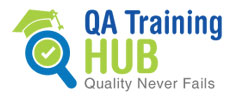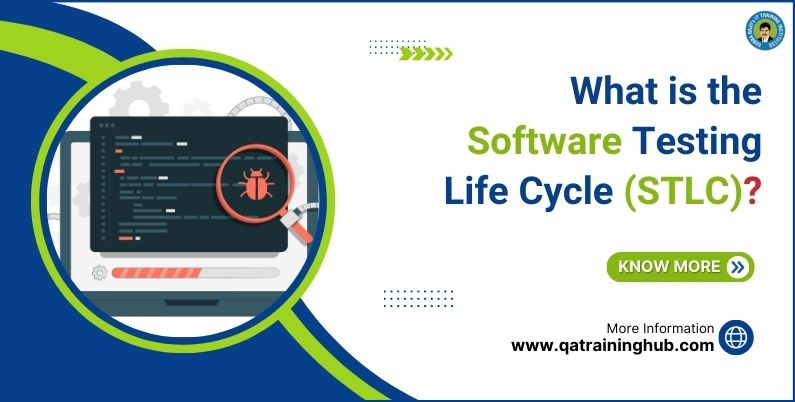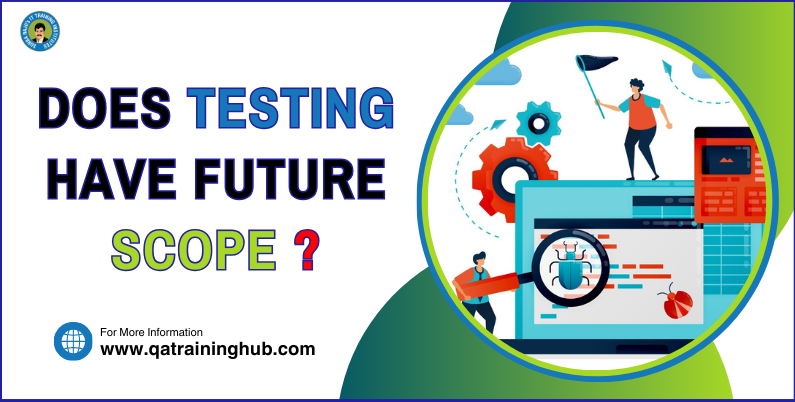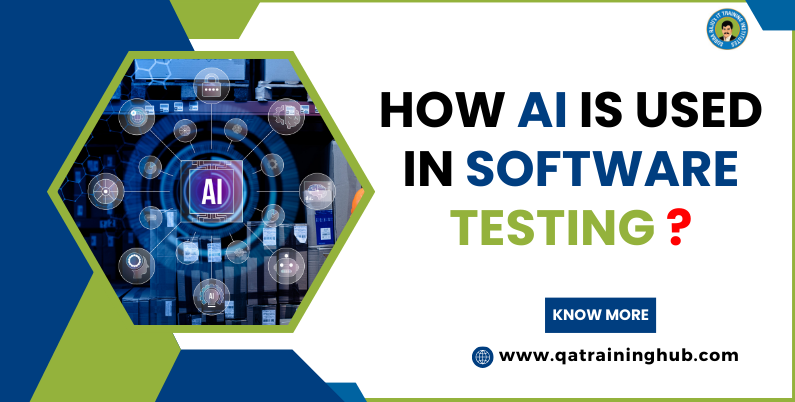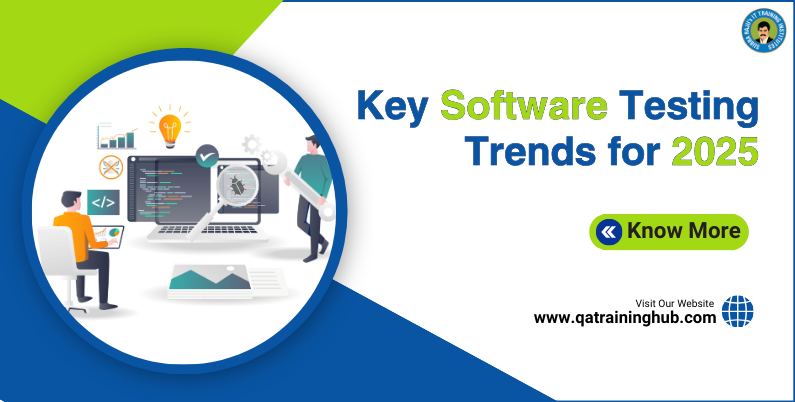
Exploring the Future: Key Software Testing Trends for 2025
As technology continues to advance at a rapid pace, software testing plays a important role in ensuring that applications meet the highest standards of quality and performance. it’s crucial for software testing professionals and organizations to stay ahead of the curve by understanding the emerging trends that will shape the industry in the coming years. From AI-driven testing to the rise of ethical testing practices, Predicting precise trends for 2025 can be challenging, but based on the trajectory of technological advancements and industry developments, here are some potential key software testing trends for 2025 timeframe.
AI and Machine Learning Integration: Artificial intelligence (AI) and Machine learning(ML) will continue to play a significant role in software testing, with further advancements in AI-driven test automation, predictive analytics, and intelligent test case generation. In 2025, we can expect to see an even greater integration of AI and ML technologies into testing processes. AI-powered testing tools will become more advanced, enabling organizations to automate complex testing tasks and improve overall testing efficiency. By using AI-powered testing frameworks, teams can identify potential risks and issues affecting performance early in the development cycle, ultimately enhancing the overall quality of the software.
Shift-Left and Shift-Right Testing: The concepts of Shift-Left and Shift-Right testing have gained momentum in recent years, Underlining the significance of early and continual engagement of testing throughout the software development lifecycle. Shift-Left testing encourages testing activities to begin as early as possible, ensuring defects are identified and addressed in the initial stages of development. On the other hand, Shift-Right testing prioritizes ongoing testing in production environments, enabling real-time feedback and proactive defect detection. In 2025, organizations will adopt a balanced approach, integrating both Shift-Left and Shift-Right methodologies to enhance software quality and customer satisfaction.
Quantum Computing Testing: As quantum computing technologies continue to advance, there will be a growing need for specialized testing techniques and tools to ensure the dependability and correctness of quantum computing systems and applications and testing professionals will face new challenges and opportunities. Traditional testing methodologies may not be applicable to quantum algorithms and applications, this requires the development of new testing methodologies and frameworks. Moreover, the natural complexity and uncertainty of quantum systems will require testers to adopt a statistical approach to quality assurance and error tolerance. Quantum computing testing will emerge as a specialized but essential area of expertise within the software testing field.
Ethical AI Testing: With the increasing use of AI and machine learning in software applications, Ethical testing frameworks will emerge to address issues such as algorithmic fairness, transparency, and accountability in AI-driven systems. Testing professionals will need to consider the ethical implications of their testing practices, ensuring that the software they test aligns with ethical standards and regulatory requirements. Organizations will invest in testing techniques and tools that assess the ethical implications of AI-driven decision-making processes.
IoT and Edge Device Testing: The rapid expansion of Internet of Things (IoT) devices and edge computing technologies is creating new challenges for software testing. In 2025, we can expect a rise in demand for testing solutions that cater to the unique requirements of IoT and edge computing environments. Testing IoT devices involves validating complex interactions between hardware, firmware, and software components across diverse network conditions and environments. Automated testing frameworks designed for IoT and edge computing environments will emerge, empowering teams to simulate real-world scenarios, identify performance errors and ensure the reliability and security of IoT ecosystems.
Robotic Process Automation (RPA) Testing: As more organizations integrate robotic process automation (RPA) technologies into their operations to automate tasks, there will be a growing demand for RPA testing solutions. Testing tools and frameworks will be developed to verify the functionality, accuracy, and dependability of RPA bots and workflows.
Blockchain Testing: Blockchain technology will continue to be adopt across various industries for applications such as cryptocurrency, supply chain management, and digital identity. Testing methods will advance to accommodate the unique characteristics of blockchain systems, including decentralized agreement mechanisms, smart contracts, and immutable data.
Quantifiable Quality Metrics: Organizations will increasingly focus on measurable quality metrics to evaluate the success of their testing activities. Parameters like defect density, test coverage, and mean time to detect (MTTD) will be used to assess the quality of software products and drive continuous improvement efforts.
Conclusion:
As we look ahead to 2025, the software testing field is set for significant changes driven by advancements in AI, DevOps, IoT, and ethical testing practices. By adopting these trends and technologies, organizations can improve the quality, reliability, and security of their software products while also speeding up time-to-market and building stronger trust with users. As professionals in software testing, it’s crucial to stay updated and adjust to these changing Key Software Testing Trends for 2025 to remain competitive in the field of software development.
At QA Training hub, we are committed to empowering testing professionals with the training, resources, and support they need to excel in their careers. Whether you’re a seasoned testing veteran or just starting your journey in the field, our comprehensive courses and industry-leading instructors are here to help you navigate the complexities of Key Software Testing Trends for 2025.
Join us as we explore the exciting opportunities and challenges that lie ahead in 2025 and beyond. Together, let’s shape the future of software testing and drive innovation.
FAQ’s
Q: What role will AI and machine learning play in software testing in 2025?
A : AI and machine learning will automate various aspects of testing, improving accuracy and efficiency in identifying defects and generating test cases.
Q : What are Shift-Left and Shift-Right testing approaches, and why are they important?
A : Shift-Left emphasizes early testing and collaboration, while Shift-Right focuses on continuous feedback and monitoring in production, both ensuring quality throughout the development lifecycle.
Q : What is ethical testing, and why is it gaining importance in software development?
A : Ethical testing ensures software development and testing align with ethical principles, respect user privacy, and mitigate biases, crucial as software systems become more integrated into daily life.
Q : What challenges do IoT and edge computing pose for software testing?
A : IoT and edge computing testing require validating complex interactions between hardware, firmware, and software across diverse network conditions, as well as addressing latency and reliability concerns.
Q : How can testing professionals adapt to the evolving software testing landscape?
A : Testing professionals must stay informed about emerging trends and technologies such as AI, DevOps, IoT, and ethical testing practices to remain competitive and ensure high-quality software products.
Q : What are some key benefits of incorporating AI-driven testing into software development?
A : AI-driven testing improves test accuracy, efficiency, and coverage, identifying potential risks and performance issues early in the development cycle and ultimately enhancing software quality.
